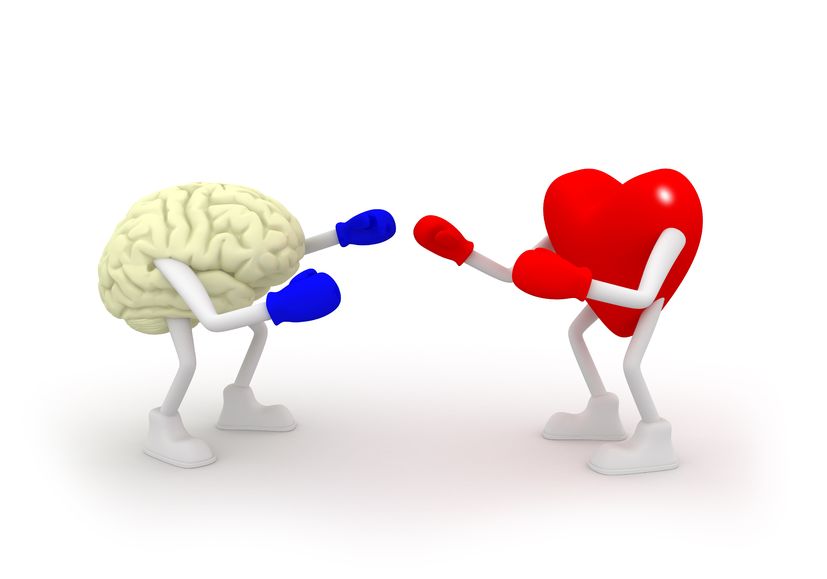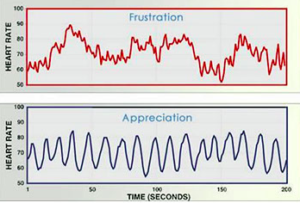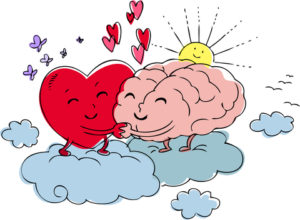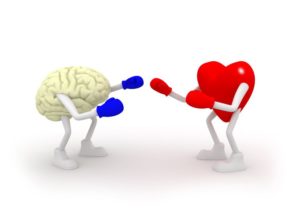
So often we experience a tug-of-war between our mind and our heart. You know what it’s like – that deep-down knowing that you could be making better choices yet can’t seem to access your inner wisdom.
- You’ve had quite enough to eat but can’t seem to avoid having one more serving.
- You know a walk or bike ride helps you think more sharply and be more productive, yet you can’t seem to tear yourself away from your desk, lest you get even more behind on work.
- You know you need to clear up a miscommunication that’s causing pain but can’t seem to find the words you seek.
Fortunately, tapping our inner wisdom isn’t some woo-woo intuitive skill only a few of us are blessed with. A deep connection with your internal knowing is a skill that can be cultivated – something you can access anytime, anywhere, with eyes wide open, in the moment.
Developing it is literally life-changing.
I’ve been interested in this sort of thing since high school when I began to explore meditation and eastern philosophy. I wondered how some people could have such a powerful internal compass. Most of the time, I felt that I had access to some of that – but not always.
About a year ago or so, I found my attention grabbed by HeartMath and its approach to developing inner coherence. Coming from a family of healthy skeptics, I wanted to see what’s actually happening when we put techniques of being fully in the moment into practice.
I was totally jazzed to learn that I had control over psycho-physiological functioning and that through the use of proven techniques, I could improve my energy levels, immune function and resilience.
HeartMath offers both techniques and technology to experience what they call heart coherence. While using the technology, it’s possible to see the changes in your heart rhythms as they move from incoherent to coherent.

But more important than seeing it was feeling what it’s like to be in a state of coherence away from the HeartMath technology; to have consistent access to an inner knowing.
As I learned more from the Institute of HeartMath, I was excited by the substantial body of current and ongoing research accrued over the past 30 years. Among the findings:
- The heart has a brain of its own.
- The heart-brain sends more information to the brain than the brain sends to the heart.
- The heart can send signals to the brain that can influence perception, emotional regulation and immune function.
- Heart coherence can affect brain health and cognitive intelligence.
When heart and mind are at odds, it’s like driving a car and riding the break at the same time. The result: Push-pull, misuse, and wasted energy.
 When our heart rhythms are coherent, all systems of the body are working together. We’re in an optimal state of health and well-being.
When our heart rhythms are coherent, all systems of the body are working together. We’re in an optimal state of health and well-being.
In a recent study of 5000 participants practicing HeartMath techniques, 83% said they felt healthier, 69% said they have more energy and vitality, and 33% reported better sleep. I have experienced each of those benefits as well.
My day-to-day results continue to offer a deeper understanding of why I make the choices I make, what I need each day to flourish – and a wonderful, unexpected perk – an increase in intuition, which I believe everyone has the capacity to develop.
When the heart is in coherence and functioning optimally, we experience greater understanding of each other and an ability to move through life with grace. Intuition and decision-making are elevated to high levels.
These numerous treasures of the heart are all-too-often untapped, and they await our recognition.
TRY THIS:
The Quick Coherence Technique is a foundational HeartMath practice. Try it when you wake up, after work, before bedtime, or any time you experience stress. You can practice with your eyes open or closed.
Heart Focus: Focus your attention in the area of your heart, in the center of your chest.
Heart Breathing: As you focus on the area of your heart, imagine your breath flowing in and out through that area.
Heart Feeling: As you continue to breathe through the area of your heart, recall a positive feeling, a time when you felt good inside, and try to re-experience it. It could be feeling appreciation for the good things in your life, or the love and care you feel for someone.
The Quick Coherence Technique is just one of many HeartMath techniques and tools. If you want to go deeper or have questions about learning HeartMath, click here.
